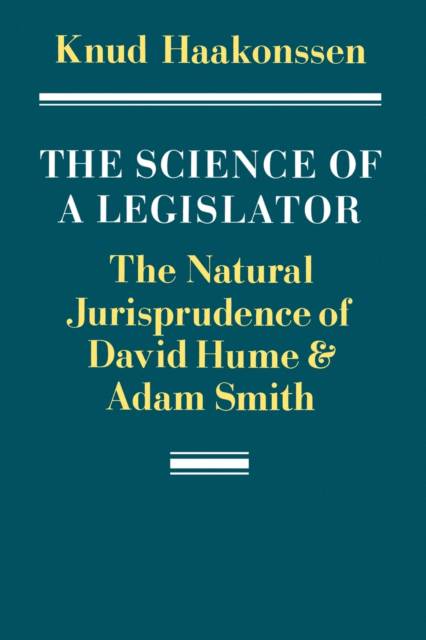
- Retrait gratuit dans votre magasin Club
- 7.000.000 titres dans notre catalogue
- Payer en toute sécurité
- Toujours un magasin près de chez vous
- Retrait gratuit dans votre magasin Club
- 7.000.0000 titres dans notre catalogue
- Payer en toute sécurité
- Toujours un magasin près de chez vous
The Science of a Legislator
The Natural Jurisprudence of David Hume and Adam Smith
Knud HaakonssenDescription
This is the first full analysis of Adam Smith's jurisprudence; it emphasizes its normative and critical function, and relates this to the psychological, sociological, and historical aspects which hitherto have attracted most attention. Dr Haakonssen is critical of both purely descriptivist and utilitarian interpretations of Smith's moral and political philosophy, and demonstrates the implausibility of regarding Smith's view of history as pseudo-economic or 'materialist'. By drawing on all of Smith's works, he shows that the framework for Smith's discussion is an interesting theory of human knowledge which leads to an original philosophy of history.
The book will interest scholars and students of moral, political, and legal philosophy, and their histories, eighteenth-century history, andthe history of ideas.
Spécifications
Parties prenantes
- Auteur(s) :
- Editeur:
Contenu
- Nombre de pages :
- 252
- Langue:
- Anglais
Caractéristiques
- EAN:
- 9780521376259
- Date de parution :
- 28-07-89
- Format:
- Livre broché
- Format numérique:
- Trade paperback (VS)
- Dimensions :
- 155 mm x 228 mm
- Poids :
- 381 g

Les avis
Nous publions uniquement les avis qui respectent les conditions requises. Consultez nos conditions pour les avis.






